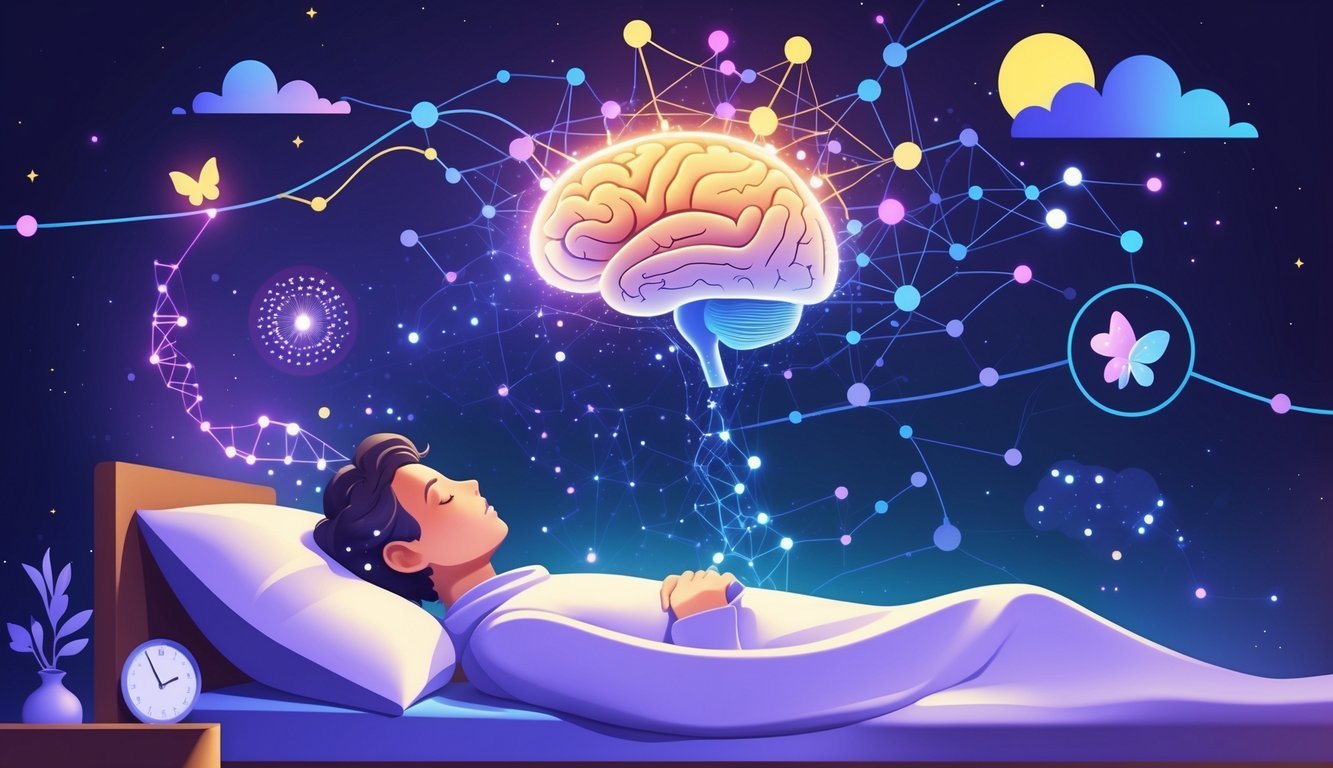PsychNewsDaily Publishers
100 Summit Drive
Burlington, MA, 01803
Telephone: (320) 349-2484
PsychNewsDaily Publishers
100 Summit Drive
Burlington, MA, 01803
Telephone: (320) 349-2484
Dreams play a crucial role in processing emotions, enhancing creativity, and supporting mental health, while also offering insights into personal thoughts and feelings.

Dreams play a surprisingly important role in your life, even if they’re weird or confusing. They help your brain deal with emotions, spark creativity, and sometimes even solve problems—so they’re definitely more than random pictures flashing by while you sleep.
If you try to figure out why dreams matter, you might pick up useful insights about your own thoughts and feelings. It’s honestly kind of wild how much your sleeping mind can reveal.
While you dream, your brain stays active, sorting through memories and emotions. This work keeps you mentally healthy and helps you wake up ready for the day.
Paying attention to your dreams might even spark new ideas or hint at what’s really bugging you. Sometimes, a dream just sticks with you, and you can’t help but wonder what it’s trying to say.
Even if dreams seem random, they connect you to yourself in a way nothing else does. Learning about your dreams can make you more aware of your inner world and how you deal with life’s messiness.

Dreams show up during a special part of sleep, and your brain gets super busy. They help you handle memories, emotions, and your mental health.
If you dig into these roles, you’ll see dreams are way more than just leftover thoughts.
Dreams play a big part in memory consolidation. When you’re asleep—especially in REM sleep—your brain sorts through the day’s memories, deciding what to keep and what to forget.
This process helps you learn and remember things better. Dreams also help your brain work through emotions from the day.
If you’ve had a rough day, your dreams might help you process those feelings and handle stress. That’s why dreaming can actually help you stay more balanced emotionally.
If you can remember your dreams, it usually means you slept well. Dream recall links with how well your brain processes memories and emotions during sleep.
The most vivid dreams usually happen during REM sleep. During this stage, your brain lights up in areas tied to emotions, vision, and memory.
Meanwhile, the parts of your brain that control movement quiet down, so you don’t act out your dreams. It’s kind of like your mind is busy making sense of all sorts of thoughts and sensations.
The activation-synthesis hypothesis says your brain tries to build a story from random signals it gets while you sleep. That’s where those wild dream plots come from.
You really need good REM sleep. If you miss out on it, your brain can’t process memories or emotions as well, and that can mess with how you feel and remember things.
Your mental health and the way you dream are tightly connected. If you struggle with insomnia or sleep problems, your ability to dream and hit REM sleep gets thrown off.
That means your brain doesn’t get a fair shot at processing emotions, and your mood might take a hit. Dreams can also show how you’re feeling emotionally.
Nightmares or stressful dreams sometimes point to anxiety or past trauma. Paying attention to them can give you clues about your mental state.
Doctors often work on improving sleep quality to help with mental health. When you sleep and dream better, you give your brain a chance to heal and manage stress.

Dreams often pull in images and feelings from your daily life, like stress from work or a family dinner. The way you understand these symbols can change how you handle emotions or memories.
Your mind mixes stuff from your subconscious and unconscious, shaping what you see in dreams.
Lots of people dream about being chased, falling, or losing someone. These themes usually connect to anxiety or stress you’re dealing with in real life.
For example, being chased often means you feel threatened or want to escape a problem. Recurring dreams happen when your mind keeps sending the same message, usually about something you need to face.
Nightmares and bad dreams highlight fears or old wounds, sometimes helping you process tough emotions. Vivid dreams or lucid dreams happen when you’re more aware inside the dream.
Sometimes you can control what happens, or even walk away from a scary scene. These experiences can give you insight into your feelings and may even help you manage stress.
People have tried to interpret dreams for thousands of years.
In the past, people used dreams for advice or predictions. These days, many still look at dream meaning to understand their emotional and mental health.
Exploring dream themes can help you figure out what your brain’s working on while you sleep.
Your subconscious holds memories and feelings just under the surface. Maybe you’re stressed about school or family, and dreams pull those feelings up, mixing them with what you notice while awake.
This helps your brain sort out pain or daily experiences. The unconscious mind goes even deeper, hiding thoughts you might have forgotten.
Freud said dreams let your unconscious express what you can’t say in the daytime. Jung saw dreams as a way to balance your inner world, using symbols and stories to reflect your real-life struggles and hopes.
If you pay attention to your dreams, you might spot clues about problems or feelings you’ve buried. That can support healing or give you personal insight, especially if you combine it with self-reflection or therapy.

Dreams can help you figure out your feelings and what you want. They also influence your mood and mental health.
Some research says dreams help with problem-solving. If you pay attention to your dreams, you might even find guidance for personal growth or setting new goals.
Dreams help your brain work through memories and emotions. They let you process feelings you might not notice during the day.
This can make you more self-aware and help you stay balanced emotionally.
Absolutely. Dreams often show what you want or fear deep down.
They give you a safe way to explore your wishes and worries.
Dreams shape your mood and stress levels. Good sleep and positive dreams can lift your spirits during the day.
Nightmares or troubling dreams might mean you’re stressed or anxious and need to deal with it.
Studies show dreams help your brain make new connections. Sometimes you find solutions or creative ideas during or after dreaming.
This seems especially true during REM sleep.
If you figure out what your dreams mean, you can understand yourself better. That helps you make choices that really fit who you are.
It can also boost your confidence and give you a stronger sense of control.
Dreams reveal what matters to you. They highlight what you truly want.
You might notice your hopes more clearly when you pay attention to your dreams. They can push you to take steps forward, even when things feel tough.
Honestly, staying motivated gets a little easier when you remember what you’re dreaming about.